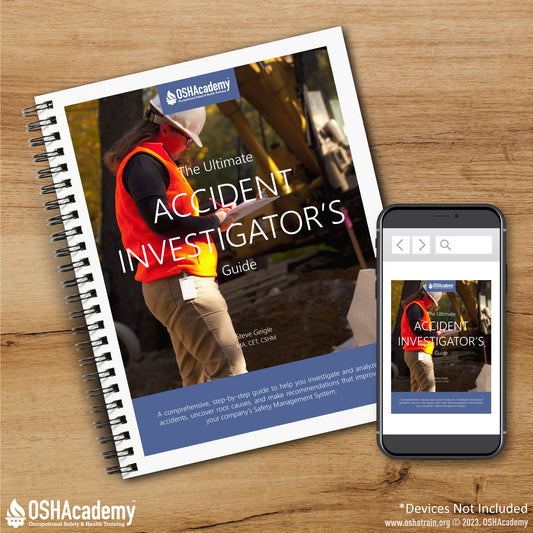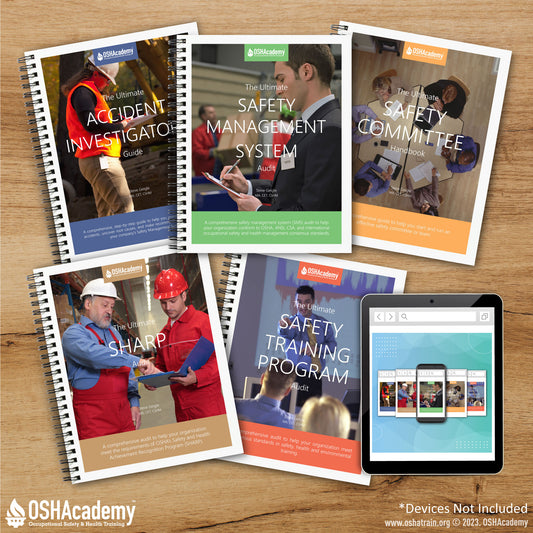
Applying Appropriate Consequences
Share
By: Steve Geigle
A safety accountability program will have adequate credibility only if the consequences for behavior are appropriate. Employees must have an expectation of fair and just consequences for behavior. What’s the bottom line? Simple: No consequences...no accountability.
What are the criteria for appropriate consequences?
- They are just.
- They are fair.
- They are consistently applied.
Positive consequences are justified any time employees meet or exceed expectations. On the other hand, negative consequences are justified only when the person administering discipline has fulfilled their own accountabilities first. Here's an important principle to understand when applying a safety accountability program:
The more Regularly you Recognize and Reward, the more Rarely you'll have to Reprimand.
It's critical to understand that, before administering progressive discipline, managers and supervisors think about and judge how well they have fulfilled their own accountabilities. Doing this is important to make sure they are actually justified in administering any form of negative consequences.
Conduct a TRESL analysis first
Determining the appropriateness of administering negative consequences does not have to be difficult. Managers and supervisors can use the acronym “TRESL” to help remember the five basic safety obligations they should fulfill before considering discipline. Let's take a look at each of these five obligations:
Training:
Management has a responsibility and should be held accountable for providing necessary safety education and training to make sure have the required knowledge, skills, and ability to comply with safety requirements. Employees must have attended instruction and training, and given an opportunity to practice hazardous procedures in a learning safe learning environment before being required to perform those procedures in the workplace.
Employees must also understand the natural and system consequences they will experience as a result of their performance.
- Natural consequences occur naturally. For instance, if you hit your thumb while hammering a nail, you feel pain. The pain is the natural consequence.
- System consequences occur systematically. As an example, the company will recognize/award and employee for excellent performance and discipline an employee who violates a safety rule.
To make sure this obligation is fulfilled, managers and supervisors should ask:
- Have I provided (or has the employee received) quality safety training?
- Do my employees have the knowledge, skills, and abilities needed to perform safely?
Resources:
Management has an obligation to make sure employee have the physical resources and psychosocial support to comply with safety requirements.
- Managers and supervisors should provide appropriate tools, equipment, materials that make it possible for employees work safely.
- Supervisors should also manage workloads, schedules, employee relations so that the workplace is as stress-free as possible. When employees believes working fast is more important than working safe, supervisors are failing in this area.
To make sure this obligation is fulfilled, managers and supervisors should ask:
- Have I provided the employee with a safe and healthy workplace?
- Do my employees have the tools, equipment, materials, and time to do the job safely?
Enforcement:
In an effective accountability program, it’s all-important that employees believe they will be recognized for working safely, and disciplined if they're caught violating safety rules. If employees believe that managers and supervisors not follow through with appropriate consequences, it’s no surprise when a safety accountability program fails. To make sure employees do believe that management will take action, managers and supervisors must establish a history of consistently applying appropriate consequences across all levels of the organization.
It’s also important to know that if managers and supervisors allow employees to violate safety rules, any justification for discipline disappears. Only mandatory rules that include the terms “shall,” “must,” or “will” may result in discipline. When managers and supervisors ignore or allow unsafe behaviors, mandatory safety rules are transformed into discretionary guidelines. There’s no real justification for discipline for lack of conformance with voluntary guidelines.
To make sure this obligation is fulfilled, managers and supervisors should ask:
- Have I applied safety accountability fairly and consistently in the past?
- Do my employees know I will follow through with appropriate consequences?
Supervision:
By definition, adequate safety supervision means "detecting and correcting hazards or unsafe behavior before they cause an injury or illness." Supervision is considered “oversight.” If supervisors are stuck in the office all day it's not possible to oversee the work employees are doing. “Lack of supervision” is a major reason discipline after an accident is not justified and inappropriate.
To make sure this obligation is fulfilled, managers and supervisors should ask:
- Did I catch the employee violating a safety rule before they got hurt?
- Do I get out on the floor often enough to properly oversee work being done?
Leadership:
Managers and supervisors must "walk the talk." That means they need to set the highest examples by following all safety policies and rules, and they need to be fulfilling the other four obligations. To do anything less sends a message that safety is not really a value.
To make sure this obligation is fulfilled, managers and supervisors should ask:
- Am I setting the right example for my employees?
- Do I send the proper safety leadership message by what I say and do?
If managers and supervisors can honestly answer “YES” to the above questions, it may be appropriate to administer negative consequences (discipline, reprimand) because they have fulfilled their own personal accountabilities first. If manager and supervisors cannot honestly answer each question in the affirmative, the manager or supervisor may need to apologize and a commitment to make improvements (provider better training, resources and expectations of enforcement, supervision and leadership).



